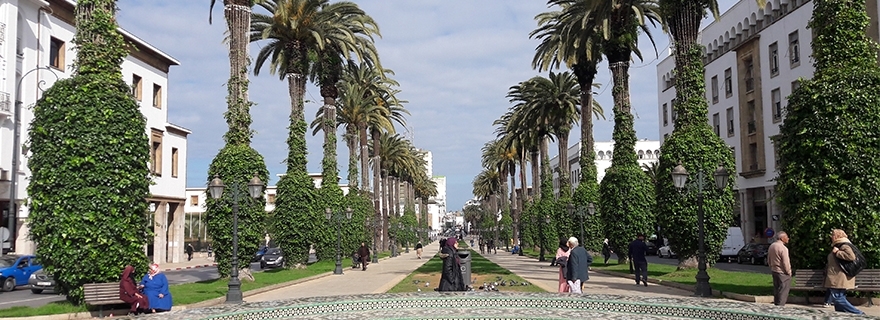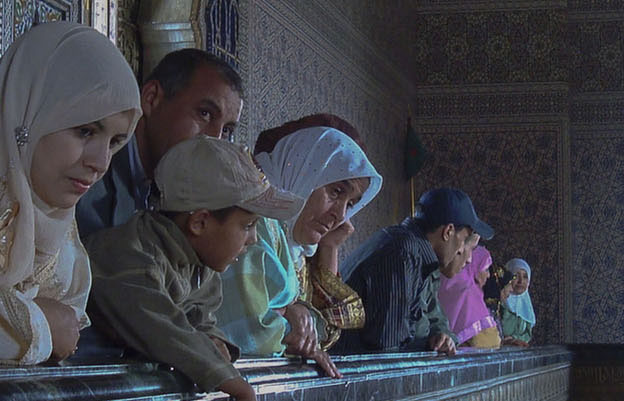Studying in Rabat
The Netherlands Institute in Morocco, part of Leiden University, is open for students from all academic and applied sciences universities in the Netherlands. Four students talk about the added value of studying in Rabat. 'I was surprised that Rabat is so modern.
Justin, student of Political Science at Leiden University
‘I'm spending three months in Rabat for my master's thesis on the recent accession of Morocco to the African Union, after the country had left the Union in 1984. In the Netherlands it's hard to gauge how much interest there is in this in Morocco. Now I'm here, I realise that it's big news and that Moroccans have high expectations of this development. I try to come into contact with as many different people as possible. I've even forbidden myself from shopping in large supermarkets; it's much easier to start a discussion in smaller shops. Fortunately, many Moroccans speak good French because my Arabic is non-existent. As NIMAR is connected with the embassy, I have access to a very broad network and I can also interview Moroccan officials about the country's renewed membership of the African Union.'

Mohamed Ahmed in the garden of the Institute: 'I was surprised at how modern Rabat is.'
Mohamed Ahmed, student of Oriental Languages and Communication, Hogeschool Zuyd Maastricht
‘My parents come from Sudan. I learned to speak Arabic at home, but I couldn't write it, which is partly why I chose to study Oriental Languages and Communication. I've travelled a lot in the Arab world and then you realise that Arab countries are all very different from one another. People in the Netherlands have quite a negative image of Morocco and it's regarded as a very conservative culture. I was surprised at how modern Rabat is. You see a lot of women walking in the streets without a headscarf and they have a lot more freedom than women in other countries in the Arab world. Later, I want to work for an NGO and an in-depth understanding of the Arab world will be very useful.'

Frances Vergeer: 'The only way to really get to know Morocco is by spending time here.'
Frances Vergeer, student of Middle Eastern Studies, Groningen University
‘You can't really study Arabic without spending time in an Arab country: that's the only way to really get to know about life here. Then you see, for example, how important the king is and that his portrait is hanging in every shop. You also can't fail to notice the extremes of poverty and wealth. Rabat is modern, but the slums start only just outside the city. I tend to stand out here as a tall, blonde female but the people aren't at all pushy. They're very surprised when they hear me speak Arabic; it something they really don't expect. Moroccan Arabic is quite different from standard Arabic. I'd really recommend everyone to spend time studying in Rabat. You learn to be independent in a very different country. At the same time you can rely on good, personal guidence from the staff at the Institute.'

Jenneke Bosma: 'In Rabat you see how Moroccan society works.'
Jenneke Bosma, student of Middle Eastern Studies and International Relations, Leiden University
‘You can have as many lectures as you want on a country, but there are certain things that you only really understand by being here. Hospitality is very important in the Arab world, which I've learned from having received a number of invitations to eat with people. I always try to think carefully about what kind of gift to take with me because gifts are very important in this society. I try to get to know the people and to speak Moroccan Arabic, although it isn't easy. In Rabat I get to see how Moroccan society works. This trip has also taught me how privileged we are in the Netherlands: we have a good education system and children aren't forced to live on the streets, as I see them doing here. It's also interesting to meet other students from the Netherlands and compare study programmes with them. When I see the Leiden University flag flying here among the palm trees, I'm rather proud that my university has an institute in Rabat.’


